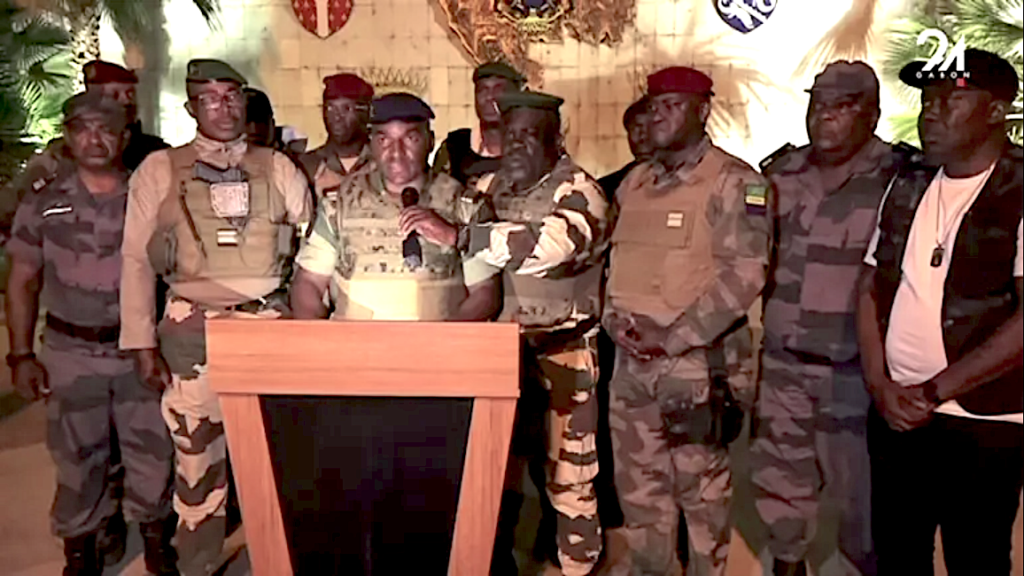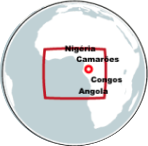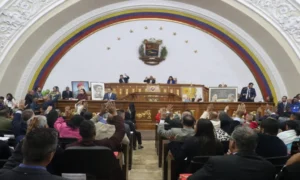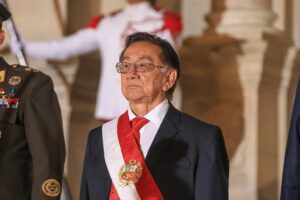
Published 31/08/2023 08:36 | Edited 08/31/2023 09:00
The attempted coup in Gabon, triggered by soldiers announcing the cancellation of election results and the dissolution of state institutions, raises crucial questions about power and political stability not only in the country but also across the region. This is the eighth coup involving the military against elected governments in countries in the central-west region of Africa, the so-called Sahel, since 2020.
In Gabon, there was a military action coordinated by a group of senior officials, which took place one hour after the announcement of the re-election of President Ali Bongo Ondimba, who has led the country for 14 years, for a third term.
Gabon is a state that has been governed by the same family for over 55 years, since its independence from France in 1960. The president-elect’s father had a reputation as a kleptocrat, as one of the richest men in the world, governing Gabon’s oil since 1967.
Read also: What’s behind the West African uprisings
His opponent Albert Ondo Ossa denounced fraud orchestrated by the Bongo camp. This context of electoral dispute becomes the backdrop for an unexpected military intervention, with the dissolution of democratic institutions.
The soldiers’ statement, read on state television, emphasizes the “serious institutional, political, economic and social crisis” that the country is going through, claiming that the elections did not fulfill the conditions to be transparent, credible and inclusive. The statement also criticizes “irresponsible and unpredictable governance” that undermines social cohesion.
The coup attempt takes place in Gabon’s capital, Libreville, where sounds of gunfire were heard after the military took command, as well as celebrations in the streets.
Despite being one of the richest countries in Africa in terms of GDP per capita, oil revenues have not prevented about a third of the tiny population of 2.3 million from living below the poverty line established by the World Bank.
Read also: Africa and the new struggle against colonialism and neocolonialism

The French scapegoat
The current situation in Gabon, reflected in the coup attempt, is not isolated in the region, a veritable coup belt. Africa’s Sahel (West and Central Africa), home to some of the world’s poorest, most politically unstable and conflict-prone countries, has seen a series of eight coups since 2020, in Mali, Guinea, Burkina Faso, Chad and Niger, which could become an epidemic.

The fact that most countries are French-speaking reveals a neocolonial dimension of instabilities. Anti-French sentiment in the streets, with the potential to recruit armed groups, helps coup plotters gain legitimacy and favors Russia as it expands its influence on the continent.
The memory of French colonialism, defined by brutal military campaigns, forced labor, widespread repression, cultural erasure, racial segregation and forced displacement, is still very much alive in the region. Mistrust with everything France does in these countries is widespread, as well as governments are seen as pawns of that European country.
Read also: Failed coup in Niger points to deep fissures in the country
In recent years, the Sahel has become a major playground for violent armed groups, from Boko Haram and the Islamic State in West Africa Province (ISWAP) to Jama’at Nusrat al-Islam wal-Muslimin (JNIM). According to the Global Terrorism Index produced by the Institute for Economics and Peace (IEP), the region is now responsible for a staggering 43% of global deaths from terrorism.
Operation Barkhane
It was precisely this scenario that, in 2012, led the government of Mali to ask for help from France, which undertook the largest modern military operation to expel Tuareg rebels and Al-Qaeda allied fighters, advancing through five other countries. The final balance was not the best, with the armed groups increasing their reach, creating serious security problems against civilian populations, which turned against the French occupation.
In this way, the trend of popular dissatisfaction with corruption, questionable governance and the inadequate management of resources are concrete elements that join the anti-French sentiment and the violence of armed conflicts. The deterioration of relations with Paris brought Mali closer to the Russian mercenaries of the Wagner group. On January 31, 2022, Mali expelled the French ambassador from the country.
Instead of trying to identify and address the root causes of the conflict, strengthening state institutions and encouraging good governance, Paris tried to solve the Sahelian countries’ security problems exclusively through military force, which was ineffective.
Also Read: Nigerian Government Negotiates Ceasefire With Boko Haram
Furthermore, a lack of trust in the political and democratic process has led to increased intolerance and an eye to the military as a possible force for change. The winner of all this was Moscow, which obtained an opening that it sought for a long time. Now the Russians fight armed groups allied with military governments, until public opinion turns against them all again.
Data compiled since 1950 by American researchers show that Africa stands out as the continent with the highest number of attempted or successful military coups, totaling 214, of which at least 106 were successful.
45 of the 54 nations on the African continent have suffered at least one attempted coup d’état since 1950. For comparison purposes, in Latin America there have been 146 coups since 1950, with 70 successful.
Read also: In Russia, Dilma meets Putin and African leaders
Check out the latest hits and counters:
Niger: On 26 July 2023, Niger’s Bazoum was overthrown by the military.
Burkina Faso: In January 2022, the Burkina Faso army ousted President Roch Kabore, blaming him for failing to contain violence from Islamist militants. In September of that year, a second coup took place by army captain Ibrahim Traoré, who forcibly deposed Paul Henri-Damiba.
Guinea: In September 2021, Special Forces Commander Colonel Mamady Doumbouya overthrew President Alpha Conde. A year earlier, Conde had changed the Constitution to circumvent limits that would have prevented him from running for a third term, triggering widespread riots.
Chad: In April 2021, Chad’s army took power after President Idriss Deby was killed on the battlefield while visiting troops fighting rebels in the north.
Mali: In August 2020, a group of Malian colonels ousted President Ibrahim Boubacar Keita. The coup followed anti-government protests over deteriorating security, contested parliamentary elections and allegations of corruption. Nine months later, a counter-coup took place, with Assimi Goita, appointed vice president after the first, leading the second and becoming head of state.
Sudan: In October 2021, General Abdel Fattah al-Burhan led a military takeover of Khartoum, dissolving a ruling council in which the army and civilians shared power and throwing the country’s democratic transition into turmoil.
With information from Aljazira
Source: vermelho.org.br

